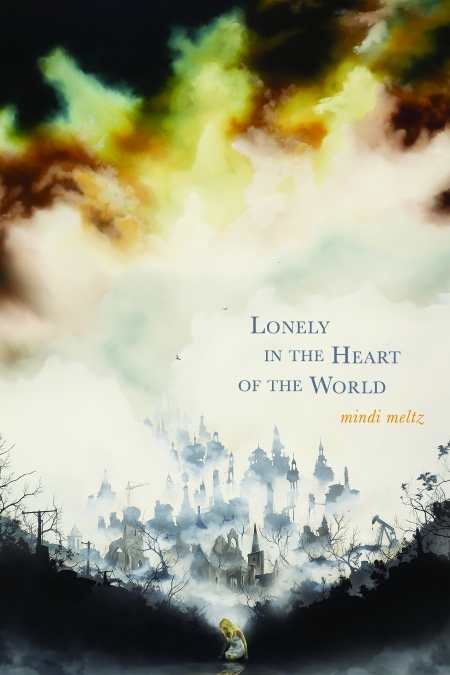Lonely in the Heart of the World
- 2013 INDIES Finalist
- Finalist, Fantasy (Adult Fiction)
Meltz delights in upending the conventions of fairy tales, even as she pushes the boundaries of the genre in new ways.
“There was a time when people worshipped the Earth, and the gods they saw moving through it, and they had advanced ways of communion between their spirits and the spirits of the elements. We no longer know many of those ways…” a wise woman tells Princess Lonely, one of the protagonists in Mindi Meltz’s latest novel, Lonely in the Heart of the World. Humanity’s disconnect from nature—as well as meditations on fear, love, loneliness, loss, and identity—are packed into this sweeping epic. She composes luscious prose that contains many universal truths, with the writing never sounding pretentious.
Lonely and the other protagonists dwell in a realm where fairy-tale concepts collide with modernity and industrialization as represented in a place known only as the City. Other protagonists searching for a sense of themselves include Mira, an abused child hiding in the body of a unicorn; Delilah, a young woman who once lived in the polluted City, but who now ekes out a rough living in the desert as she longs for human touch; Dragon, a demigod of fire who yearns for a sexual companion; and Sky, a god searching for love.
Meltz delights in upending the conventions of fairy tales, even as she pushes the boundaries of the genre in new ways. For example, Lonely appears to be the stereotypical naïve princess in a tower waiting for her prince, but because the hero does not appear, she gets herself out of her predicament and begins the journey on her own. The fantasy elements of princesses, demigods, and archetypal quests mesh well with the recognizable industrial destruction of the City because of Meltz’s deceptively simple, lyrical prose. The style also allows Meltz to weave a theme of environmentalism through her story while still sustaining the novel’s fairy-tale air.
The story only becomes confusing when the author shifts point of view to a nameless resident of the City who is referred to in the second person. The plot moves at a leisurely pace, allowing time to glory in adages such as: “What is giving, but some mysterious will that causes life to move from one being through another?” Meltz pens evocative description as well, speaking of “Fear [being] a constant spirit in the horse’s life,” and “she is safe inside the oblivion of flesh …” Among such lush phrasing, the use of the F-word shocks.
The author brings readers into the heart of her world with ease, making all plot strands tie together in a convoluted, yet comprehensible way. Although they remain motivated to seek love, Lonely, Delilah, and Mira all emerge as females with fortitude in the face of adversity.
Reviewed by
Jill Allen
Disclosure: This article is not an endorsement, but a review. The publisher of this book provided free copies of the book and paid a small fee to have their book reviewed by a professional reviewer. Foreword Reviews and Clarion Reviews make no guarantee that the publisher will receive a positive review. Foreword Magazine, Inc. is disclosing this in accordance with the Federal Trade Commission’s 16 CFR, Part 255.

